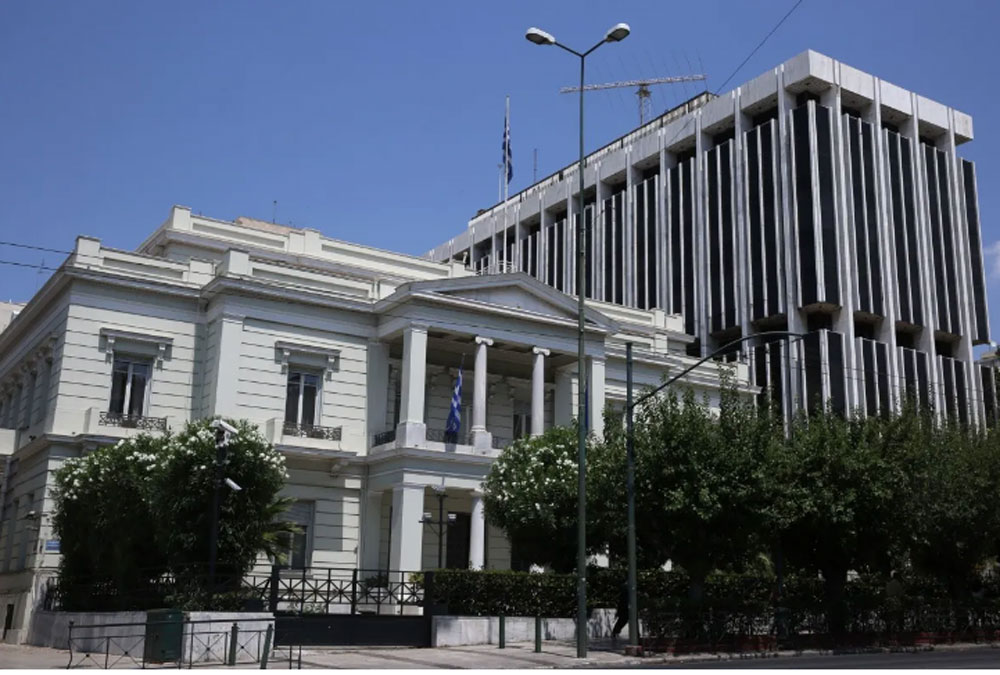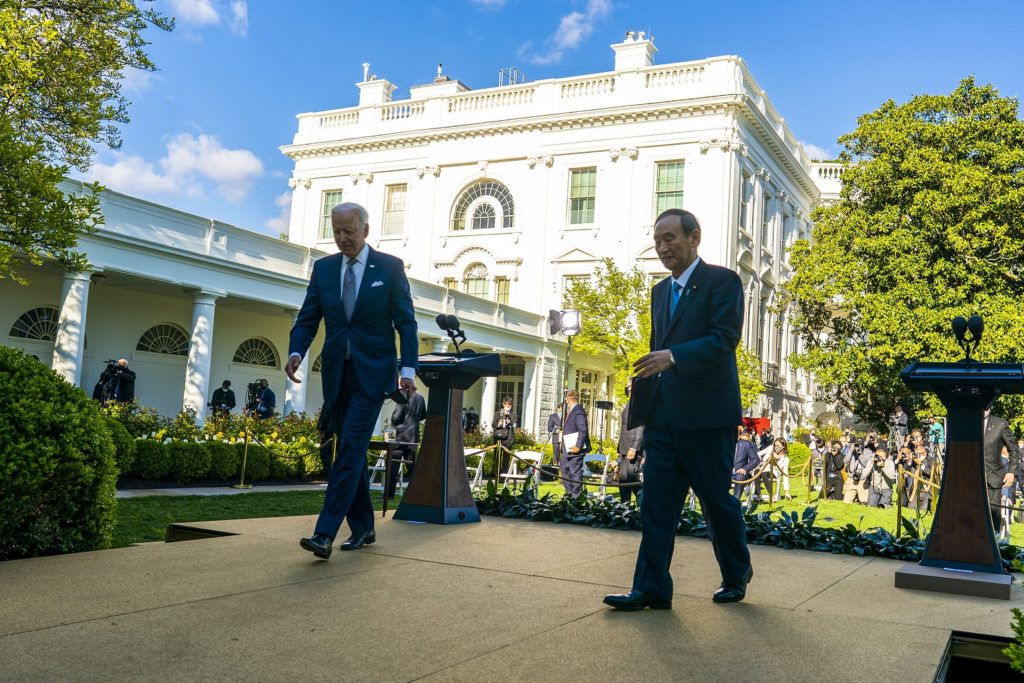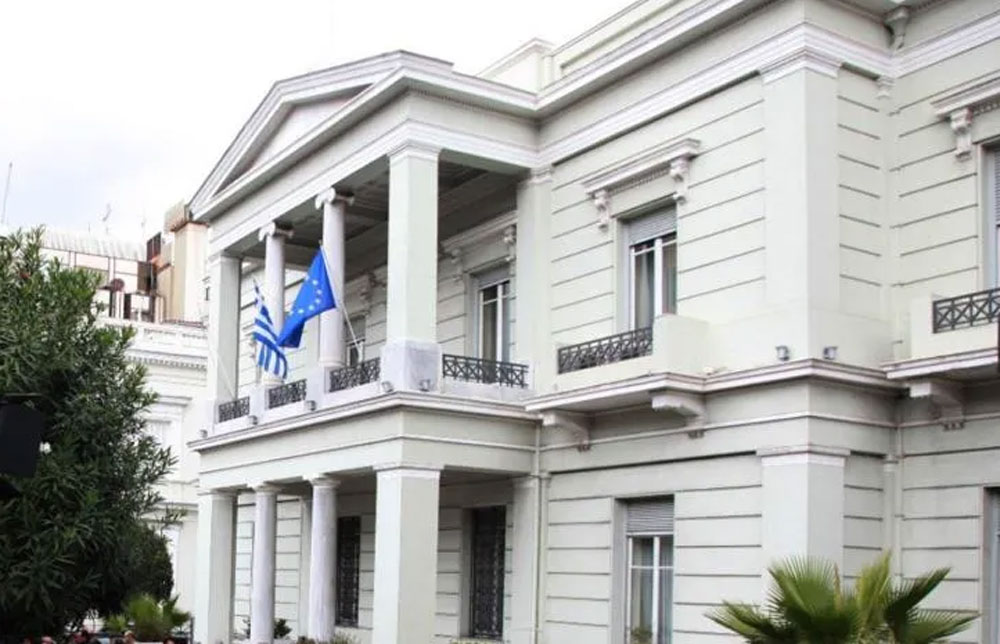
A fork in the road: A perfect storm of problems results from Erdogan’s Genocide denial

File Photo: Ο πρόεδρος Τζο Μπάιντεν με τον πρωθυπουργό της Ιαπωνίας, Suga Yoshihide (Δ) στο Λευκό Οίκο. EPA, Doug Mills, POOL
One and a half million Armenians were killed between 1915 and 1923 during the waning years of the Ottoman Empire. The overwhelming majority of historians refer to their deportation and murder as the “Armenian Genocide” but Turkey continues its refusal to remember it as such.
In the immediate aftermath, Turkey tried and convicted some of the perpetrators. Today, however, Turkey adamantly denies the Genocide and actively campaigns against its recognition. U.S. President Joe Biden’s recognition the Genocide on Armenian Genocide Remembrance Day, April 24, would help Turkey face this tragic chapter in history. It would also send a signal of solidarity with progressive members of Turkish civil society who demand transparency and accountability.
President Biden repeatedly called for the US to recognize the Armenian Genocide in his decades as a US Senator. As a candidate, he reaffirmed his commitment to Genocide recognition in a letter to the Armenian Assembly of America on September 16, 2019:
“The United States must never forget or remain silent about the systematic and horrific campaign of extermination that resulted in the deaths of 1.5 million Armenian men, women, and children, and the mass deportation of 2 million Armenians from their homes. If we do not fully acknowledge, commemorate and teach our children about genocide, the words “never again” lose their meaning.”
Biden’s recognition of the Armenian Genocide would underscore recent Congressional resolutions in both houses. Members of the House of Representatives submitted Resolution 296, “affirming the United States record on the Armenian Genocide”, states that it is US policy to “1) commemorate the Armenian Genocide, the killing of 1.5 million Armenians in the Ottoman Empire between 1915 and 1923; 2) reject efforts to deny the Armenian Genocide; and 3) encourage education and public understanding about the Armenian Genocide.” The resolution was adopted overwhelmingly by a vote of 405 to 11 on October 29, 2019.
Senate Resolution 150, adopted by unanimous consent on December 12, 2019, mirrors the House resolution. It confirms U.S policy “to commemorate the Armenian Genocide through official recognition and remembrance.”
Turkey has managed to slow U.S recognition of the Genocide by leveraging its NATO membership and strategic geography. It hires a phalanx of lobbyists for its denial campaign. While it relied on the so-called Jewish lobby and arms industries to advocate its case, Erdogan has undermined these relations by labelling Israel’s treatment of Palestinians as a “genocide” and acquiring Russian surface to air missiles in violation of NATO protocols.
A confluence of factors has taken a toll on US-Turkey relations.
Islamist jihadis, under Turkey’s control, invaded north and east Syria in October 2019, killing hundreds of Kurdish fighters in the Syrian Defense Forces (SDF) who serve as America’s boots on-the-ground. More than 11,000 Syrian Kurdish militias were killed and 23,000 wounded fighting the Islamic State (ISIS) at America’s behest.
Erdogan undermined support from the US evangelical community by jailing Pastor Andrew Brunson in 2016, accusing Brunson of assisting the failed cou against him that year, and sponsoring jihadists proxies who murdered Armenian, Chaldean and Assyrian Christians in Syria.
In September 2019, Turkey deployed jihadi gangs in the Hamza and Sultan Murad brigades from Syria to Artsakh (the Armenian term for Nagorno-Karabakh, a historic Armenian land in Azerbaijan) where they committed war crimes that include decapitating civilians, mutilating bodies, and driving hundreds of thousands of ethnic Armenians from their homes. These crimes can be linked right back to Turkey’s National Intelligence Organisation (MIT) given the agency’s remit over organising Syrian proxies to fight Erdogan’s wars abroad in place of Turkish soldiers. .
- Though former Prime Minister Ahmet Davutoglu heralded a policy of “zero problems with neighbors”, Turkey is at-odds with almost all of its neighbors now. Turkish forces are deployed to Syria, Iraq, and Libya while Turkish war ships patrol the eastern Mediterranean, confronting Greece, Cyprus and Israel over natural gas claims.
Erdogan ignores opportunities for dialogue and reconciliation. If Biden uses the “G-word”, Erdogan threatened to deny US access to Incirlik Air Force Base, a NATO facility, as well as other military bases in Turkey.
A perfect storm of problems results from Erdogan’s Genocide denial, purchase of sophisticated weapons from Russia, and attacks on the pro-Kurdish People’s Democratic Party (HDP). Freedom House downgraded Turkey from “partly free” to “not free” in response to its abuse of political and civil rights, as well as denial of Internet freedoms in recent years as a result.
Erdogan wants to avoid sanctions, which would undermine popular support for his Justice and Development Party (AKP). The Turkish Lira has collapsed from the AKP‘s economic mismanagement. The Turkish Lira was trading at 2 Lira to 1 U.S dollar in 2002 when the AKP won its first election. That is far-cry from today where 8 Turkish Lira buy 1 U.S dollar. Businesses are defaulting as creditors call in their notes and Turkey’s foreign currency reserves have dwindled dramatically to support the Lira.
Turkey can ill afford an economic war with the U.S and Europe. It is already sanctioned under the Countering American Adversaries Through Sanctions Act (CAATSA) for purchasing S-400 missiles from Russia. Working with Congress, the Biden administration could intensify CAATSA sanctions.
The US could also apply sanctions under the Global Magnitsky Act for Turkey’s human rights abuses and support for jihadis. Turkey’s intelligence agency and defense ministry could also be sanctioned under Magnitsky as well.
- European officials have been waiting to see what the US does before finalizing its approach. The E.U may respond with comparable sanctions of its own if Washington makes the first move.
President Biden’s expected reaffirmation of the Armenian Genocide will be a bitter pill in the short term. However, it will lay the foundation for restoring relations over time. Reform and recognition will put Turkey on track to becoming a respected member of the international community once again.
David Phillips is Director of the Program on Human Rights and Peacebuilding at Columbia University and heads the Artsakh Atrocities Project. He served as a Senior Adviser and Foreign Affairs Expert during the Clinton, Bush and Obama administrations.
Condition in eastern Mediterranean dominated Dendias, Shoukry meeting in Cairo

